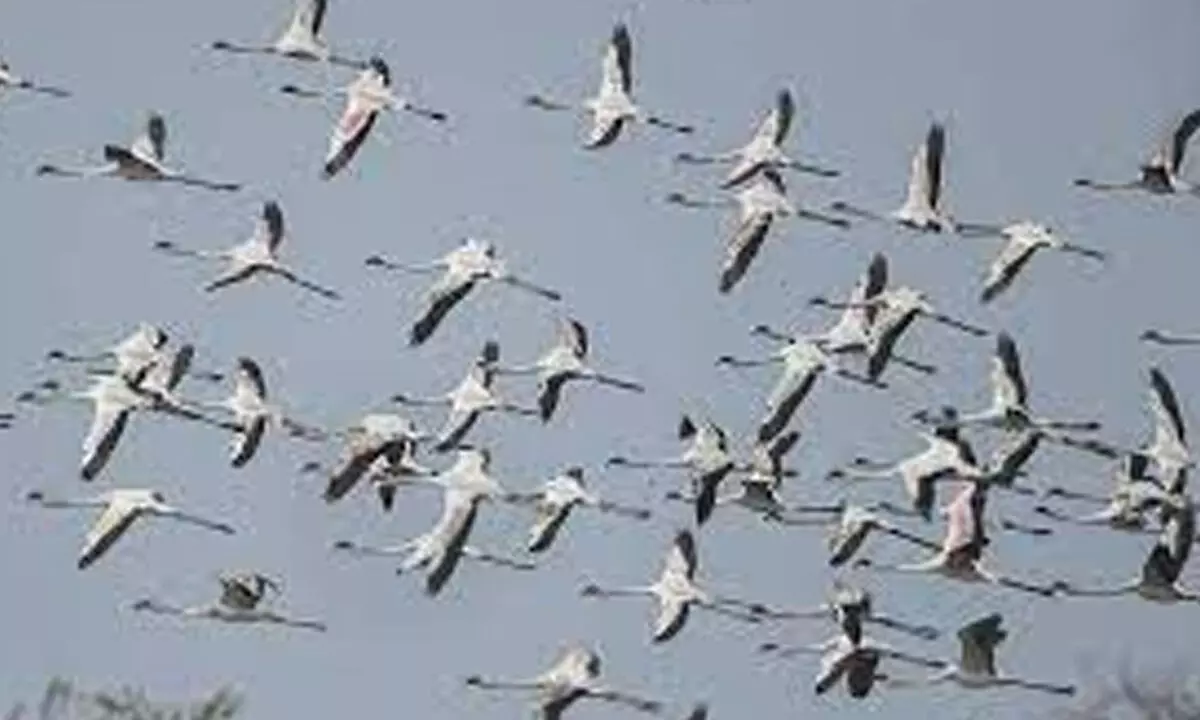Climate change impacting migratory animals: UN report at COP28 summit
Share :

Climate change is already having catastrophic impacts on many migratory animals and their ability to provide vital ecosystem services to humanity, a major new report of the Convention on the Conservation of Migratory Species of Wild Animals (CMS), a UN biodiversity treaty, said on Thursday.
Dubai: Climate change is already having catastrophic impacts on many migratory animals and their ability to provide vital ecosystem services to humanity, a major new report of the Convention on the Conservation of Migratory Species of Wild Animals (CMS), a UN biodiversity treaty, said on Thursday.
Released at the UN Climate Change Conference in Dubai (UNFCCC COP28), the report finds the direct effects of climate change on many migratory species are already being seen, including poleward range shifts, changes in the timing of migration, and reduced breeding success and survival.
Integral to the ecosystems they live in, migratory species support vital ecosystem services that both mitigate the impacts of climate change and increase the resilience to climatic hazards.
The study also emphasises the urgent need to “act now” to help vulnerable migratory species adapt to a changing climate. Actions such as the establishment of comprehensive and well-connected networks of protected areas and other effective area-based conservation measures are crucial to support species movement in response to climate change, whilst direct human interventions, such as the translocation of vulnerable populations of species, will be needed in some cases.
Some of the key findings of the report include: Strong evidence that global increases in temperature have affected most migratory species groups, and these impacts are mostly negative.
For instance, rising temperatures are causing changes in the reproduction and survival of krill and are having a negative impact on marine mammals and seabirds that rely on krill as a key food source.
In particular, temperature increases are driving poleward range shifts and earlier migration and breeding. In some species, such as wading birds, there is a risk this will cause a mismatch between the timing of breeding and the time when prey species are most abundant.
Changes in water availability are causing the loss of wetlands and reduced river flows, which are likely to particularly impact the migration of fish and water birds.
Extreme climate-related events such as landslides are causing severe habitat destruction and have already been observed at some seabird breeding sites. And there is strong evidence that migratory seabirds and marine mammals will be impacted by the changes in oceanic currents which are likely to alter the nature and functioning of many marine and terrestrial ecosystems.
The study ‘Climate change and migratory species: a review of impacts, conservation actions, indicators and ecosystem services’ was commissioned by the British government and Northern Ireland through the Joint Nature Conservation Committee (JNCC) as a major contribution to the work of CMS on climate change, and prepared by the British Trust for Ornithology (BTO).
“Nature underpins the very fabric of our lives -- the ecosystems, food and water security upon which we all depend, as well as the health of our economies. The challenges that these migratory species face as a result of climate change are a powerful demonstration of the need for coordinated global action to protect our environment, which is why the UK is taking a leading role in efforts to restore nature, halt biodiversity loss and achieve our stretching targets to protect 30 per cent of land and sea by 2030,” said Steve Barclay, Secretary of State for Environment, Food and Rural Affairs of the United Kingdom of Great Britain and Northern Ireland.
